Generally, small companies or startups that develop software start without an established quality plan or a quality team. Instead, the developers manage the development and testing themselves, so there may be little documentation or a lack of quality improvement processes.
Once those companies can hire more employees, they consider having a team of QAs. A group of technicians who ensures the quality of the software developed by implementing manual and automated quality processes, establishing quality management tools, and managing errors, improvements, and the quality of new developments. But to have all the methods and all the tools working, some steps must be taken to scale as quickly as possible since the company will continue to grow and the pace of work will increase, making it more challenging to establish new processes later.
The QA team is a part of the development team. Therefore, they should be connected since communication and agreement between both parties is crucial to introduce any change correctly.
First steps
Initially, it is not clear where to start or what the company needs right now, so it is necessary to take some steps to be prepared to scale in the future.
Define the current situation
First of all, it is convenient to talk with each person on the team to understand the company's current situation and thus define the key points to be addressed.
The use of mind map tools is very useful in organizing the entire process more clearly
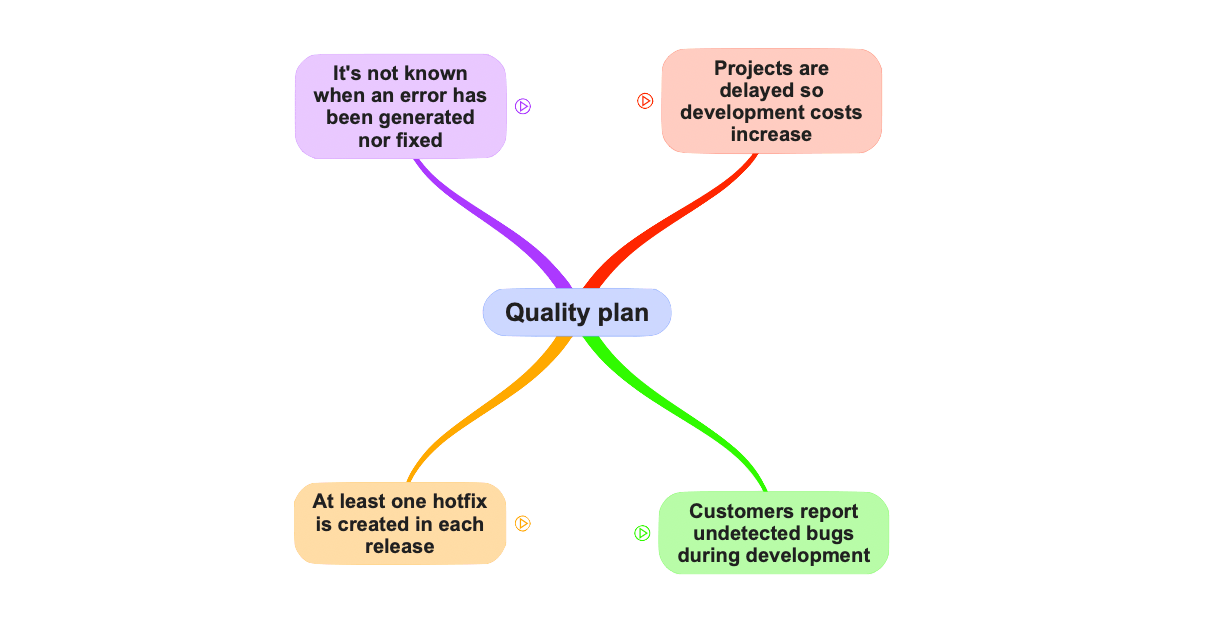
Detect needs
Once the current situation has been defined, the company's deficiencies or needs regarding quality must be detected and linked with those topics.
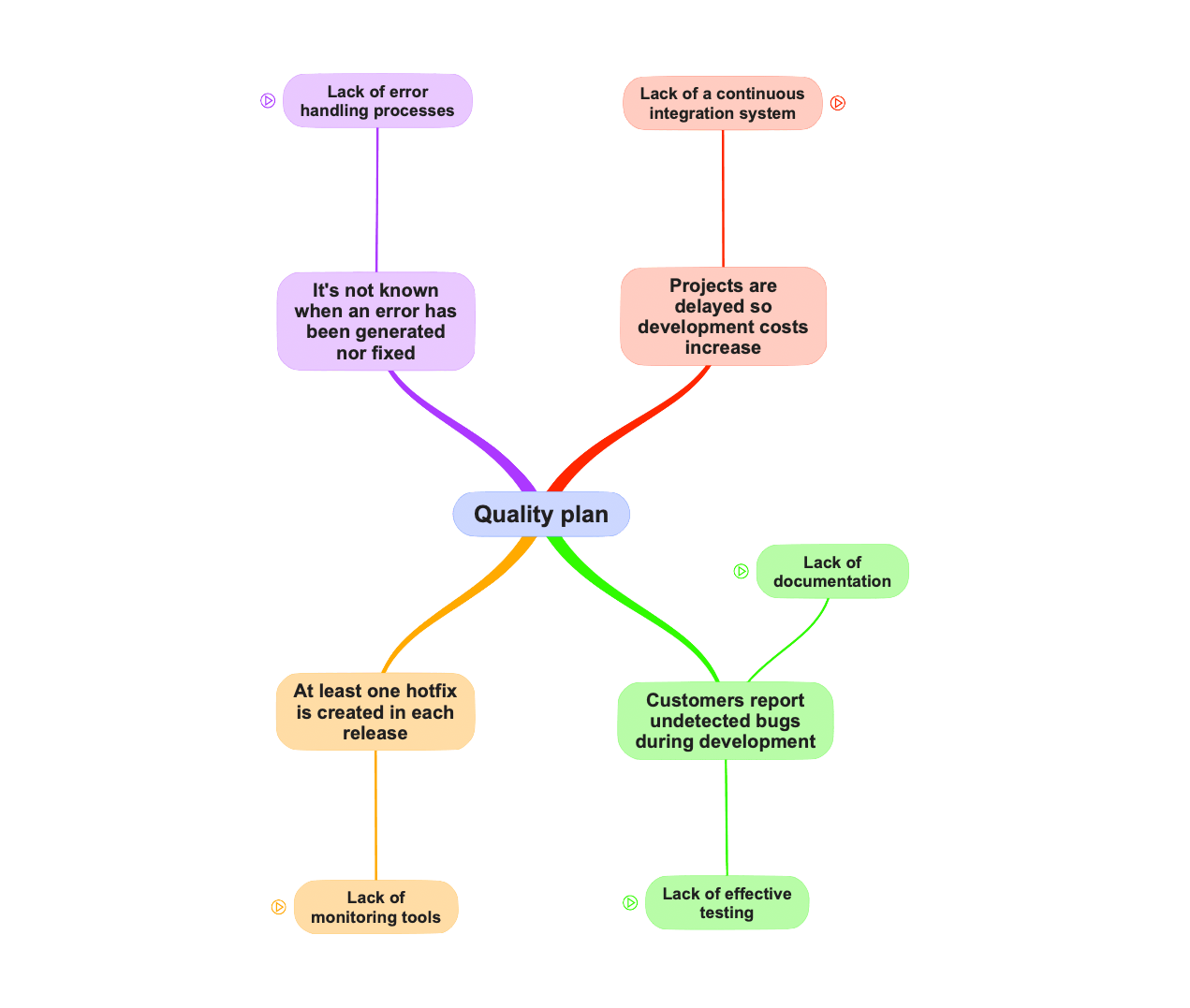
Define long-term goals
Of all the needs that the company may have in terms of quality, long-term objectives must be defined (for a maximum of one quarter), which must always be aligned with the goals and culture of the company.
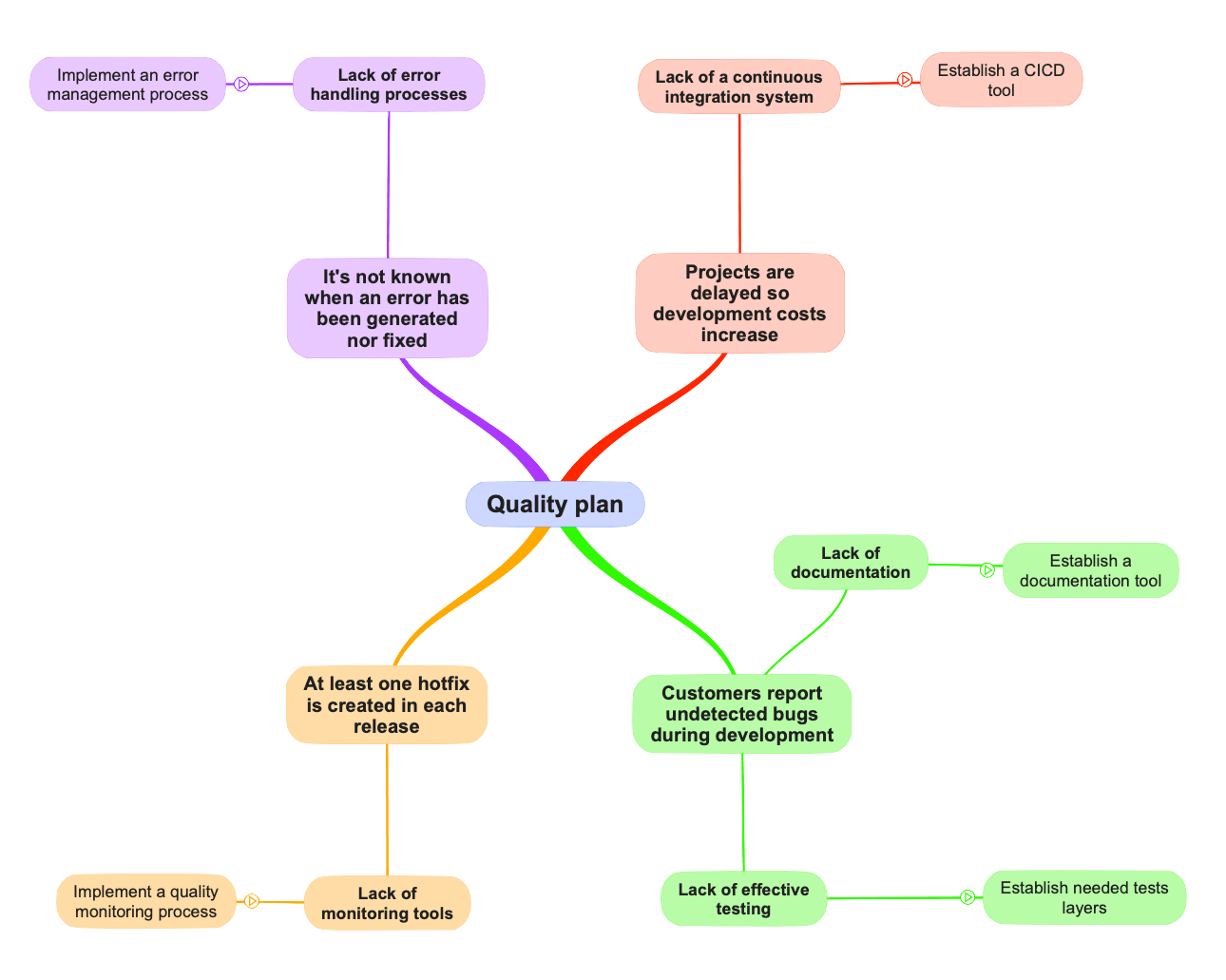
Define short-term goals
The long-term objectives must be broken down into different short-term goals, which should be executed in a maximum of one month.
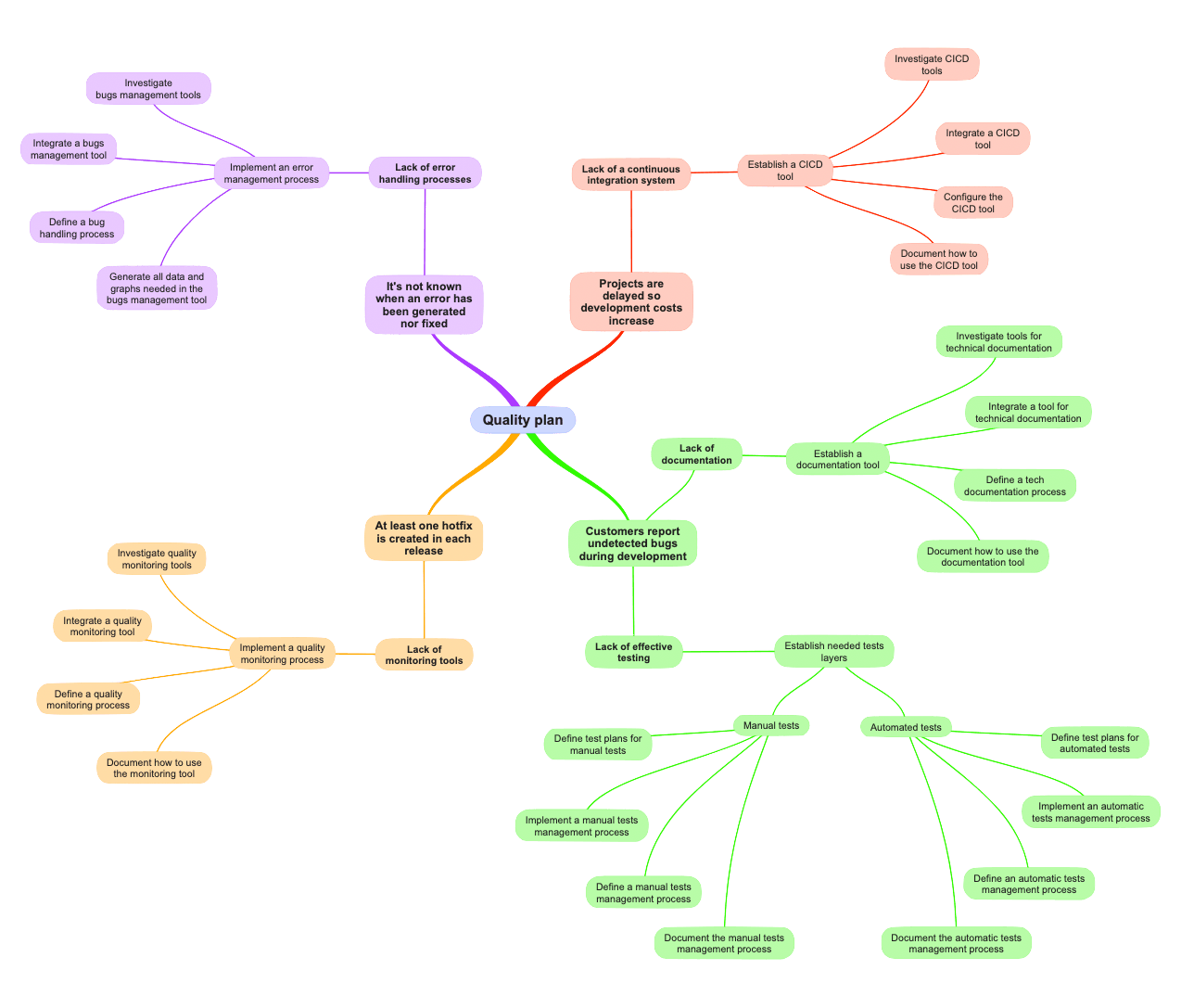
Prioritize short-term goals
Each short-term goal should be measured by its impact and the effort required to implement it. It is also convenient to indicate if there are dependencies with other objectives or stakeholders to measure priorities better.
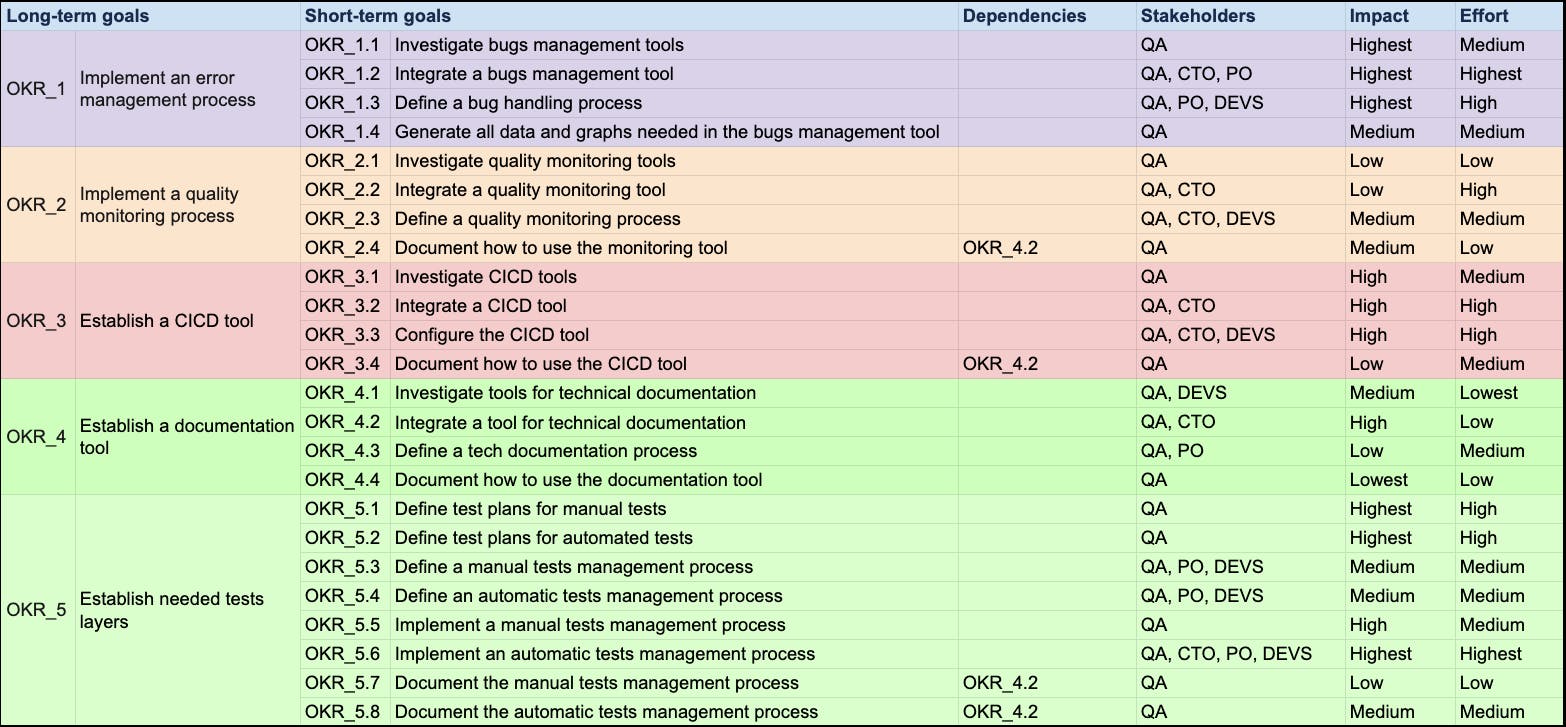
Finally, they must be ordered from those with the most significant impact and least effort.
It's beneficial to use the "Action priority matrix" where to position each objective to see more clearly the priority of each one of them.
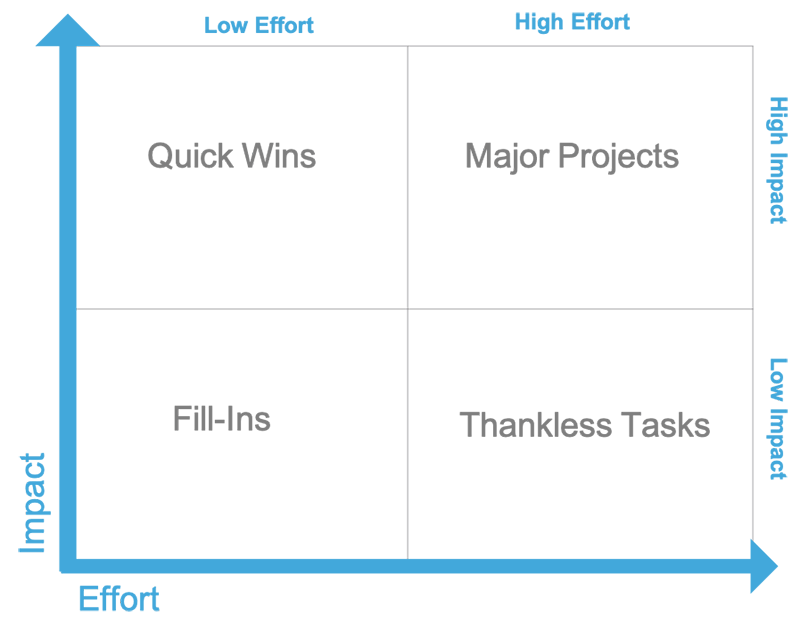
Start working on goals
Once the short-term objectives have been prioritized, we should start from the "quick-wins", those with the highest impact and lowest effort, and those with dependencies, trying to parallel them as far as possible.
Define new goals
It is not advisable to make very long-term goals, so each quarter, new long-term goals should be defined, and work on their short-term goals. In this way, the work can be focused and more easily aligned with the company's current situation.
Next steps
When the foundations of quality are in place, the company will be able to scale without too much difficulty, but some steps should still be taken to lay these foundations.
Review
These long-term goals will only sometimes be definitive. Therefore, making a first "version" of these is advisable so that once implemented, a verification of their usefulness and effectiveness is carried out, being able to readjust or even discard them if necessary.
Iterate
Those processes or tools that the entire team has accepted should continue to iterate, adding more excellent utility, greater efficiency, and lower cost if possible. In addition, they should be aligned from time to time with the company's needs.
Escale
When the processes already have the necessary maturity, it is possible to take a further leap and start with projects on a larger scale. For example:
- Define a Test Strategy for the whole team.
- Establish a Whole Team Testing approach.
- Externalize all manual testing.
- Add more testing layers (security, load, stress, etc.)
Final Words
Laying the foundations of quality in small companies is more accessible to implement than in large companies since they require fewer stakeholders and allow changes to be made more quickly. Still, in any case, the whole team's work is necessary, investigating, organizing, agreeing on changes or new processes, and implementing them.
Teamwork is essential to scale, and quality is a foundation for it.
We’d love to hear what you think! Drop us a line and let us help you build amazing writing experiences.

